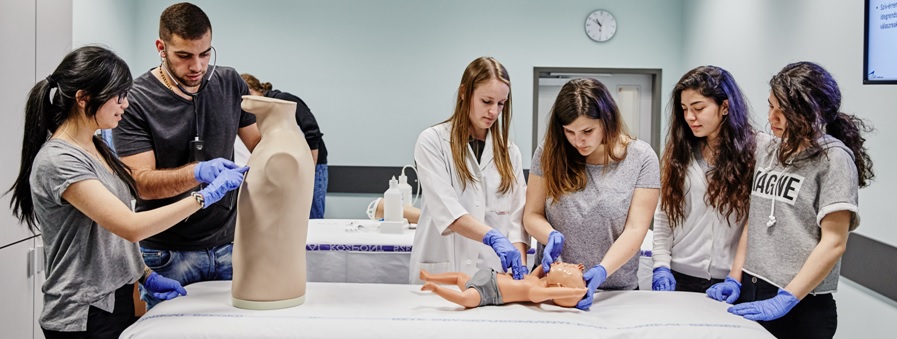The first two years of the medical program serve as the foundation of basic medical knowledge. From the third year training is extended with regular clinical practice, where students intensively take part in the work of the clinical departments and the teaching hospitals.
The Faculty’s excellent scientific laboratories furthermore offer those students a wide range of opportunities who would like to join high standard scientific research activities.
In the last two semesters – the clerkship year – students perform clinical rotations of 40 weeks, proving that they are ready to start their carrier as a physician.
